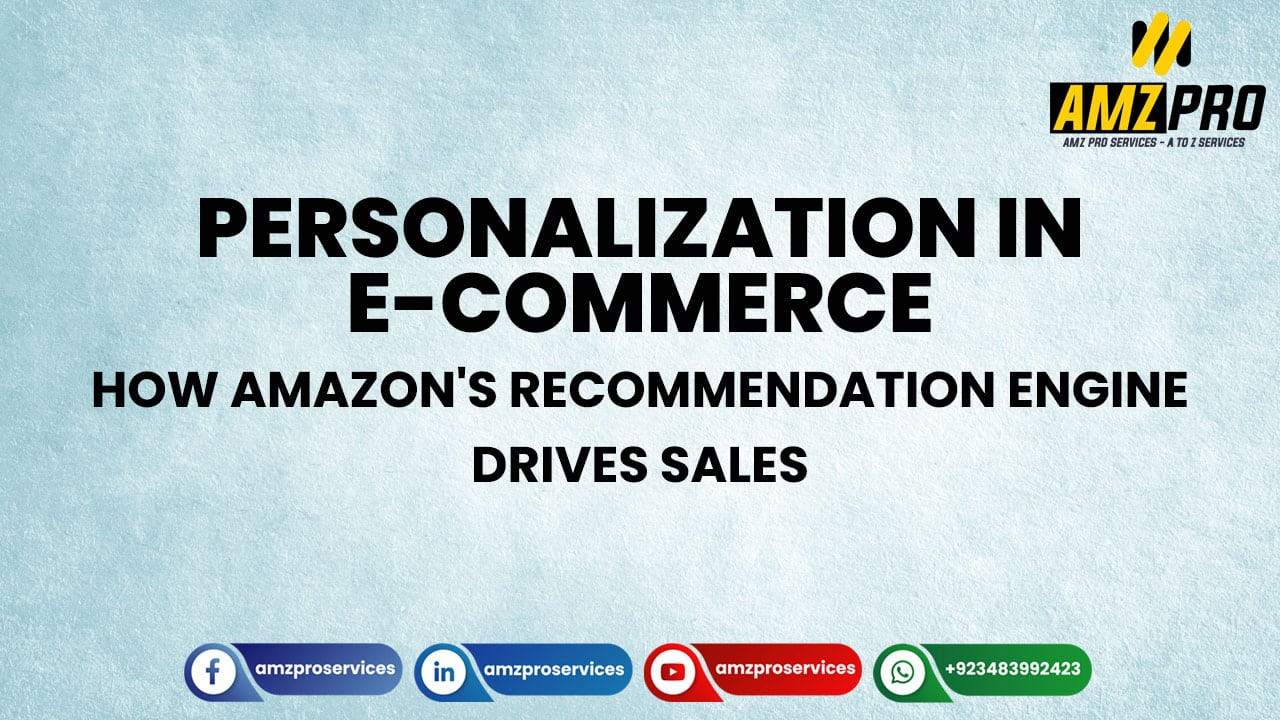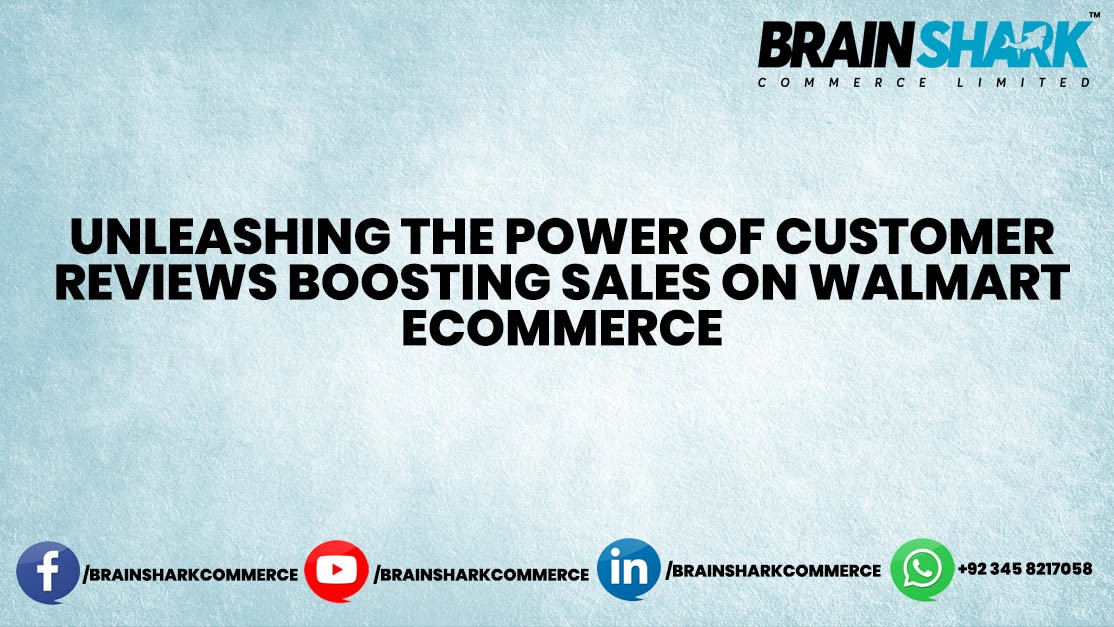Personalization in E-commerce: How Amazon's Recommendation Engine Drives Sales
The Power of Personalization in E-commerce
In the vast digital marketplace, personalization has become a game-changer for e-commerce businesses. It offers a potent way for brands to differentiate themselves, stand out from the competition, and deepen relationships with their customers. Personalization transforms online shopping into an individualized experience, mirroring the personal touch and assistance offered in physical stores.
One company that has mastered this concept is Amazon, the e-commerce behemoth. Its sophisticated recommendation engine has reshaped shopping experiences, driving customer engagement, and pushing sales to unprecedented heights.
Dissecting Amazon's Recommendation Engine
Amazon’s recommendation engine is a data-driven system that uses machine learning algorithms to analyze individual customer data and generate personalized product recommendations. It utilizes both explicit and implicit data to learn about customers' preferences, behavior, and shopping habits.
Explicit data includes information that customers voluntarily provide, such as product ratings and reviews, previous purchases, and wish lists. Implicit data, on the other hand, is collected from customers' actions on the website, like browsing history, search queries, page views, and time spent on pages.
By studying and correlating these data sets, Amazon's engine can predict customer preferences, suggest products that match those preferences, and even anticipate future needs.
Driving Sales: The Amazon Way
Amazon’s recommendation engine serves as a powerful sales-driving tool. Here's how it boosts the company's sales:
- Personalized Shopping Experience: By analyzing individual customer data, the recommendation engine creates a highly personalized shopping journey. Customers see product suggestions tailored to their unique tastes, which enhances their shopping experience and increases the likelihood of purchases.
- Upselling and Cross-Selling: Amazon's engine excels at upselling and cross-selling by suggesting products that complement items in a customer’s cart or viewing history. For instance, if a customer is buying a smartphone, it might suggest a screen protector or a compatible phone case.
- Increasing Average Order Value (AOV): By encouraging customers to add more items to their carts through relevant suggestions, Amazon successfully increases its AOV, which in turn raises revenue.
- Boosting Customer Engagement and Retention: By continually offering relevant and personalized product recommendations, Amazon keeps customers engaged, motivating repeat purchases and fostering customer loyalty.
Balancing Personalization and Privacy
While the benefits of personalization in e-commerce are compelling, it's essential to balance personalization and privacy. Amazon handles a vast amount of customer data to fuel its recommendation engine. It's critical that the company uses this data responsibly and transparently to respect customer privacy and maintain trust.
Amazon uses robust security measures to protect customer data, and it provides clear communication about its data collection and usage practices. Customers can adjust their privacy settings to control the data they share and the personalization they receive. This careful approach helps Amazon balance the power of personalization with the importance of privacy.
Future of Amazon's Personalization Strategy
Amazon continues to innovate and improve its personalization strategies to stay ahead in the rapidly evolving e-commerce landscape. With advancements in AI and machine learning, we can expect Amazon's recommendation engine to become even more precise and personalized in the future.
As these technologies become more sophisticated, they will enable a deeper understanding of customer behavior and preferences. This will allow Amazon to deliver even more personalized shopping experiences, likely driving customer engagement and sales even higher.
Additionally, as voice commerce continues to grow, Amazon’s personalization strategy will likely extend to voice interactions, providing tailored product recommendations based on voice commands and queries.
The Impact on Other Businesses
Amazon's success with its recommendation engine sets a precedent for other e-commerce businesses. It serves as a compelling case study demonstrating the power of personalization in driving sales and customer loyalty.
To compete in today's digital marketplace, other e-commerce businesses must also invest in personalization strategies. Whether this involves developing their own recommendation engines or utilizing third-party services, the goal is the same: create personalized experiences that meet customer needs and drive sales.
It's not just about suggesting products; it's about creating a holistic, personalized shopping journey. From the homepage to product pages, from email marketing to retargeting ads, every touchpoint is an opportunity for personalization. By fully embracing personalization, businesses can not only increase sales but also build stronger relationships with their customers.
Overcoming Challenges in Personalization
While personalization offers tremendous benefits, implementing it effectively can be challenging. Ensuring the accuracy and relevance of product recommendations is crucial, especially with a large product catalog like Amazon’s. Companies need to constantly refine their algorithms and stay abreast of changing customer behaviors and preferences.
Data privacy is another significant challenge. As companies collect more customer data, they must also prioritize data security and privacy. Transparency in data practices is crucial to maintain customer trust. Companies need to communicate clearly how they collect, use, and protect customer data and give customers control over their personal data.
Conclusion
In the world of e-commerce, Amazon's personalization strategy, driven by its powerful recommendation engine, is a testament to the profound impact of personalized shopping experiences on driving sales. By leveraging customer data and advanced algorithms, Amazon succeeds in delivering tailored product suggestions that resonate with individual customers, fostering a deeper connection and boosting sales.
The success of Amazon's recommendation engine offers valuable insights for other businesses seeking to enhance their personalization strategies. It's clear that personalization is not just a 'nice-to-have' feature; it's a business imperative that can significantly affect a company's bottom line.
As technology continues to evolve, personalization in e-commerce will reach new heights, with AI and machine learning driving even more precise and tailored shopping experiences. For businesses willing to embrace these advancements, the future of e-commerce looks promising indeed. As Amazon's story illustrates, the key to unlocking sales growth in e-commerce may well lie in the power of personalization.

